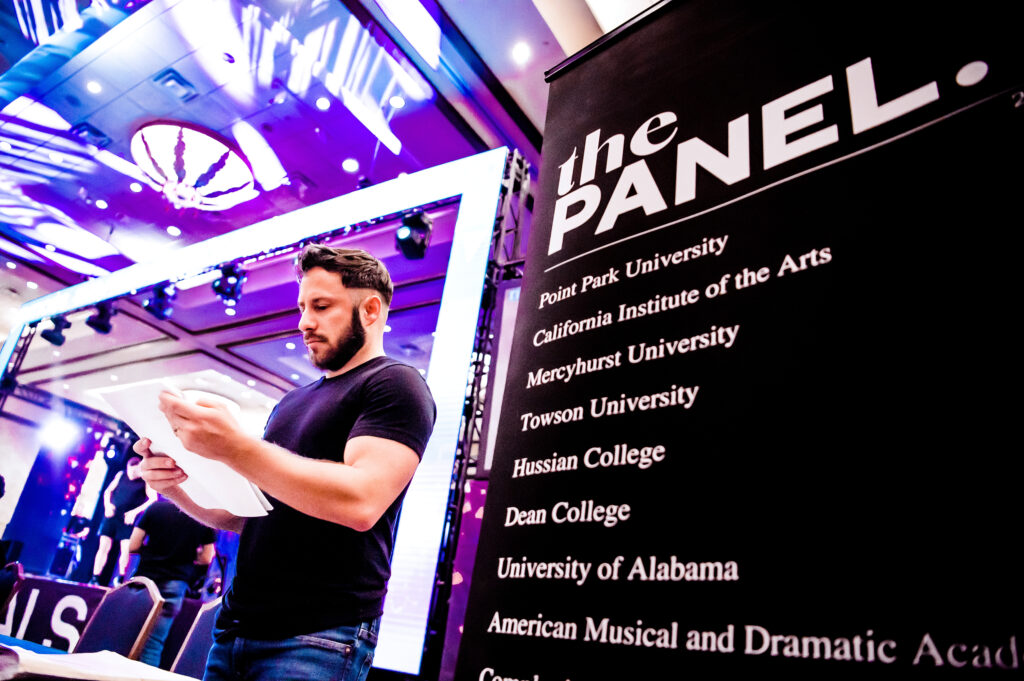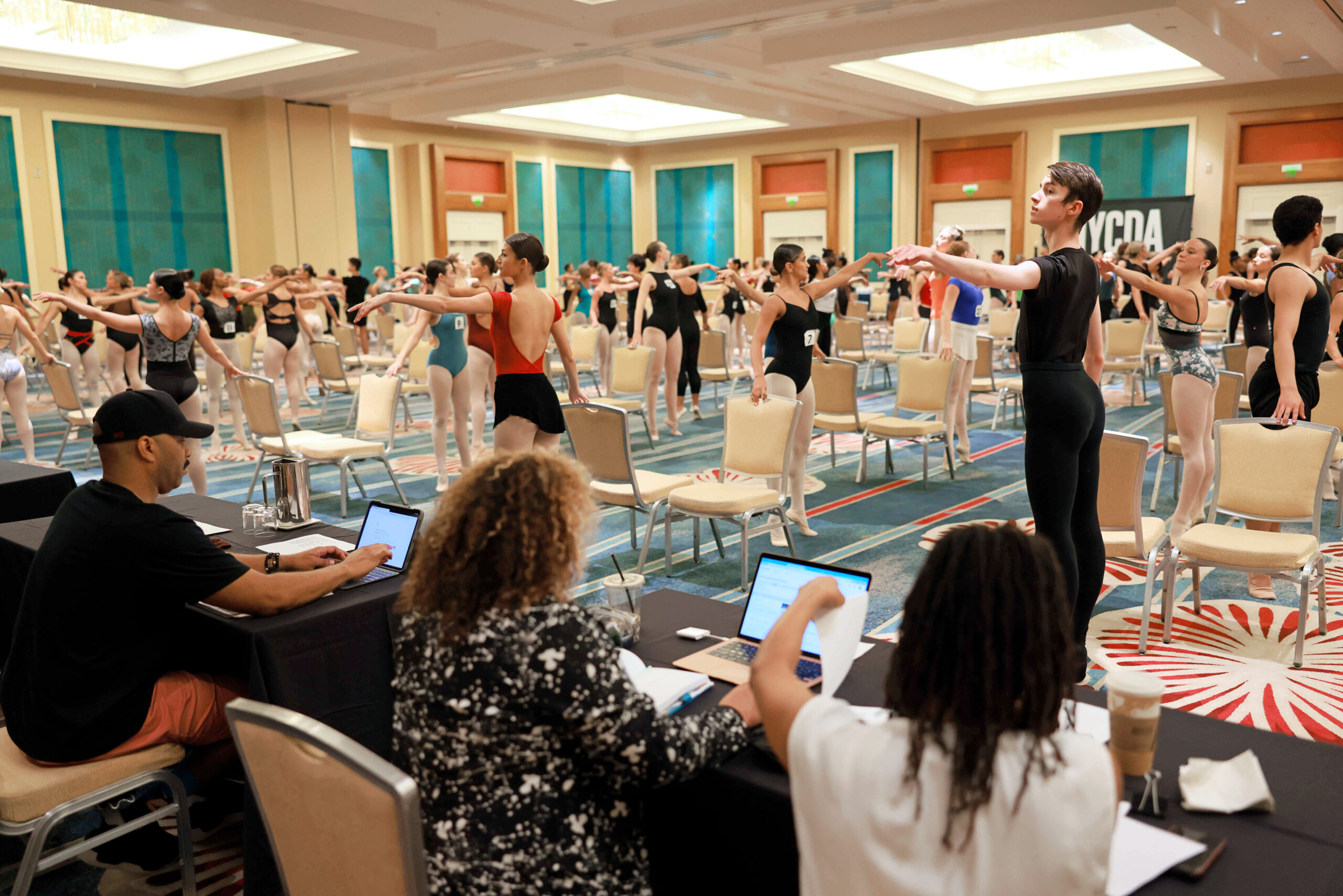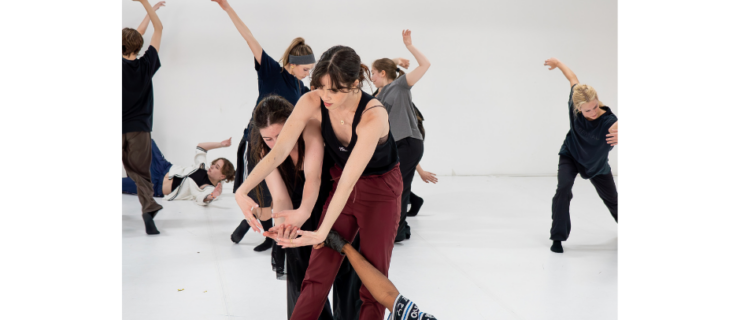How Conventions Have Become a Stepping Stone to College Dance Programs
Over the last decade, top dancers from the convention circuit have chosen, in increasing numbers, to attend college programs after high school. “The perception used to be that attending college meant missing your opportunity to make it in the dance world,” says Joe Lanteri, founder of New York City Dance Alliance and executive director of Steps on Broadway in New York City. Lanteri acknowledges that there had long been a belief that college dance education hadn’t caught up with that of the professional world, so dancers believed the only way to properly prepare for a professional career was to move to a big city at a young age and take classes at a major studio. Now, Lanteri says, a greater number of dancers realize that they can emerge from college better mentally and physically prepared for a career in dance—and that many of the opportunities will still be available. As students’ pathways have shifted, competitions and conventions are increasingly creating pathways to college, as well, through scholarship and enrollment auditions.
Why Choose College?
College programs offer dancers the opportunity to invest in themselves as movers and thinkers through dance training and academic coursework, says Lanteri, who suggests that the college experience provides students with a more nuanced understanding of dance—and the world. “When dancers are coming right out of the convention circuit, their awareness of the scope of the dance world is often very limited,” he says. “College is an opportunity to broaden horizons and be exposed to a fuller picture of what the dance world has to offer.”
College can also offer opportunities for dancers to build a strong community of artists and a professional network, says Lanteri, who notes that the friendships dancers naturally make in conventions can ease the transition to college. “Dancers often already know people in college programs that they have met at events like ours, so they have a connection wherever they choose to go,” he says. “BA and BFA programs provide the means to continue building those connections—they make new friends, meet new teachers, and have new experiences that will bolster their professional networks.”
A Bridge to Higher Ed
Helping dancers fulfill their dreams of pursuing higher education while advancing their dance training was Lanteri’s goal when he founded the NYC Dance Alliance Foundation in 2010. “The intent was to help dancers take money raised by the program and apply it to the college dance program of their choice,” he says. “Funding is often an obstacle when dancers want to attend college, and I wanted to help them overcome that hurdle.”
Every summer at NYCDA Nationals, Lanteri holds a college audition that’s grown to be more than just a recruiting opportunity. “Colleges are only able to attend if they have funds allocated to offer scholarships on the spot,” he says. The event offers rising seniors the opportunity to audition for some of the top U.S. dance programs, months ahead of the schools’ individual audition dates. Additionally, students who have just graduated from high school can receive additional scholarship money from the NYC Dance Alliance Foundation, which can be used for any college dance program.
Christian Clark, co-owner and general manager of REVEL Dance Convention, has added college and university programs to thePANEL, an audition event held at that company’s national finals. “Our goal was to create an experience under one roof where we could provide access to university programs, casting agencies, dance teams, and professional companies,” he says. “We wanted something that offers the college component but also focuses on dancers who do not have that destination in mind.” Dancers participating in thePANEL are evaluated for tuition-based scholarships and conditional college acceptance opportunities, as well as agency representation, casting projects, and other training opportunities. “As a partner in the training process, we believe it is important to lend resources to those pathways,” says Clark.

Dancing Through College
Clark and Lanteri both anticipate that more and more dancers from conventions will consider college as a viable next step. “A lot of dancers are going to college—without majoring in dance—who still want to continue dancing,” says Clark. “Dance teams have become a huge part of that, and schools that offer other ways to be involved with dance programs have too.” Lanteri suggests that the benefits of college can extend far beyond the years spent on campus. “College helps dancers begin to shape a career, not just get a job,” he says. “Any dancer can book a job, but how you transition that into a career, taking your talents and all you have been exposed to and translating that into something with longevity—that is something college helps many dancers achieve.”
Convention Work-Study for College Students
When Christian Clark, co-owner and general manager of REVEL Dance Convention, noticed that college-age dancers were continuing to attend conventions, looking for the connectedness of the intensive experience, he set up a program for students. REVEL now has a work-study program that allows University of Alabama dance majors to attend regional events. “We pay for their travel and lodging, and they have the opportunity to learn about business programs, management, and software systems, while taking class for half the weekend,” he says. Students are exposed to the business and customer service side of the convention, while also reconnecting with dance friends and continuing to build their professional networks.




